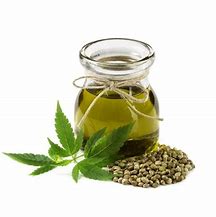Cherry Kernel Oil





-
Cherry Kernel Oil
- Latin Name
Prunus avium, Prunus cerasus - Family: Rosaceae
- Etymology
Avium is from the Latin and means 'of birds', Prunus is the Latin name for the plum tree and ceraus is the Latin name for cherry: Prunus Cerasus is the sour cherry. - The Plant and its Environment
Cultivated cherries are derived from two species,the sour cherry Prunus cerasus (ancestor of the morello cherry) and Prunus avium, which grows wild in Britain and gives rise to the sweet cherries.- The Oil
- Cherry kernel oil is emollient and stable.
- Persic oil is the fixed oil obtained from the kernels of various species (ie apricots, peaches, cherries, plums) by cold expression The french pharmacopia has a monograph for refined Persic oil (Bruneton 1995).
- Method Of Extraction
The oil is expressed from the fruit stones of varieties of Prunus cerasus.
{youtube}v=r0SpynNc7dE{/youtube}
Principal Constituents
| Type | Based On | Content - % |
| C16:0 | Palmitic Acid | 4-9 |
| C18:0 | Stearic Acid | <4 |
| Typical saturated fatty acid unit content | <15 | |
| C18:1 | oleic Acid | 58-80 |
| C18:2 | linoleic Acid | 10-32 |
| C18:3 | linolenic Acid | <0.1 |
Physical Properties
| Odour | Mild, Nutty |
| Acid Value | 2.0 max |
| Iodine Value | 95 - 115 |
| Saponification Value | 182-202 |
| Soluble | in isopropyl esters, mineral and other vegetable oils |
| Insoluble | in water |
- Cosmetic Uses
Cherry stone oil imparts a long lasting emollient effect on the skin and gives a high gloss to the hair; used in emulsified and anhydrous conditioners.- A rich natural emollient which spreads well, although benefits and uses are not yet well understood, but its use generally is as for almond oil.
- Cautionary Notes
Cherry stone oil under occlusive patch is reported to be non-irritating to rabbit skin. - References: Bruneton J 1995 Pharmacognosy, phytochemistry, medicinal plants. Intercept. Andover p.126
- References: Carrier Oils for Aromatherapy Massage: Len Price with Ian Smith & Shirley Price.
Articles-Most Read
- Home
- Contact Us
- Coconut Oil-2
- Absorption Ratings for Carrier Oils
- Cold Pressing Method
- What are Essential Fatty Acids
- Cherry Kernel Oil
- Fixed Oils and Skin Penetration
- Hempseed Oil
- Almond Oil
- Cocoa butter
- Camelina Oil
- Antibacterial Effects Of Carrier Oil
- Coconut Oil
- Lime Blossom Oil (macerated)
- Carrot Oil, Wild Carrot Oil (macerated)
- Apricot Kernel Oil
- Kukui Nut Oil
- Pumkin Seed Oil - Cucurbita maxima, C. pepo
- Jojoba Wax
- Passion Flower OIl (Macerated)
- Hydrocotyle Oil (macerated)
- Palm Kernel Oil
- Rapeseed Oil - Carrier Oil
- Nutrients
Who's On Line
We have 36 guests and no members online
Articles-Latest
- How to Make Homemade Olive Oil: A Step-by-Step Guide
- 20 Evidence-Based Aloe Vera Oil Benefits For Skin, Hair & Health
- Peanut oil - Cold pressed - Are There Health Benefits? How To Make
- What Are the Health Benefits of Black Seed Oil?
- Comfrey oil Infused
- Chamomile Flowers Infused Oil
- Calendula Flowers Infused Oil
- Arnica Flowers Infused Oil
- How To Make Herb-Infused Oils
- DIY avocado oil for healthy skin
- How To Make Coconut Oil
- 8 Benefits of Mustard Oil, Plus How to Use It
- SHOREA STENOPTERA SEED BUTTER
- Shea Butter- 7 Amazing Benefits Of Shea Butter
- Monoi Oil For Hair & Skin
- Mango Seed Oil
- Cohune Oil Is The Next Big Thing
- Brazil Nut OIl
- 7 Impressive Benefits Of Allspice
- Camelina Oil Benefits, Uses, and Side Effects



